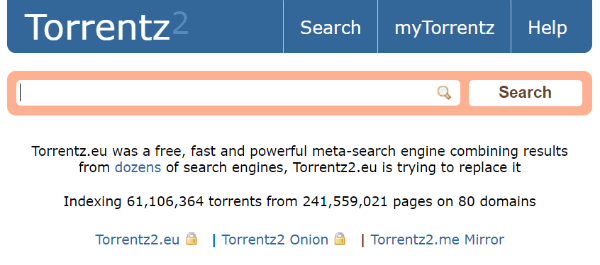Introduction
The internet has revolutionized how we share and access content, and one of the most well-known file-sharing methods is through torrents. If you’ve ever wondered what a torrent is, how it works, and whether it is legal, you’re in the right place. This article will explain torrents in detail, covering everything from the basics to the advanced technical aspects, benefits, risks, and legal considerations.
Understanding Torrents
A torrent is a method of file distribution that allows multiple users to share files efficiently without relying on a central server. Instead of downloading files from a single source, torrents use a peer-to-peer (P2P) network, where users (peers) share bits of a file with each other.
The term “torrent” often refers to both the file itself (with a .torrent extension) and the technology used to download files via the BitTorrent protocol. A torrent file contains metadata about the file being shared, including the names, sizes, and locations of file parts.
How Do Torrents Work?
Torrents work using the BitTorrent protocol, which is a decentralized file-sharing system. Unlike traditional downloads, which rely on a single server, torrents distribute the file across multiple users. Here’s how the process works:
1. Torrent File and Magnet Links
- A torrent file is a small file containing metadata about the files being shared.
- Magnet links eliminate the need for a torrent file by directly connecting to peers.
2. The Role of a Torrent Client
A torrent client is a software application that manages torrent downloads and uploads. Popular torrent clients include:
- uTorrent
- BitTorrent
- qBittorrent
- Deluge
3. Seeders, Leechers, and Peers
- Seeders: Users who have downloaded the full file and are sharing it with others.
- Leechers: Users who are downloading the file but haven’t completed it yet.
- Peers: Any user connected to the torrent network, including both seeders and leechers.
4. Trackers and DHT (Distributed Hash Table)
- Trackers: Servers that help peers find each other.
- DHT (Decentralized Hash Table): A trackerless method where peers find each other without a central server.
5. Swarming and Piece Distribution
- Files are broken into smaller pieces.
- Users download different pieces and share them with others simultaneously.
Benefits of Using Torrents
Torrents offer several advantages over traditional downloading methods:
1. Efficient File Distribution
Since files are downloaded from multiple sources, the load is distributed, reducing server strain and increasing speed.
2. Faster Downloads
The more seeders available, the faster the download speeds, as multiple connections contribute to the download process.
3. Resumable Downloads
Unlike direct downloads, torrents allow you to pause and resume downloads without losing progress.
4. Decentralized System
Torrents do not rely on a single server, making them more resilient against failures and takedowns.
5. Free Access to Content
Many legal torrents provide free access to open-source software, educational content, and creative commons media.
Risks and Concerns of Torrenting
While torrents offer numerous benefits, they also come with potential risks:
1. Legal Issues
Downloading copyrighted content without permission is illegal in many countries. Some governments actively monitor and block torrent sites.
2. Malware and Viruses
Torrents from untrusted sources may contain malware, viruses, or spyware that can harm your device.
3. Privacy Concerns
Your IP address is visible when you download torrents, making it possible for third parties to track your activity.
4. ISP Throttling
Internet Service Providers (ISPs) may throttle (slow down) your internet speed if they detect torrent traffic.
How to Torrent Safely
If you decide to use torrents, follow these steps to minimize risks:
1. Use a VPN (Virtual Private Network)
A VPN hides your IP address and encrypts your internet connection, improving privacy and security.
2. Download from Trusted Sources
Stick to reputable torrent websites that provide verified content, such as:
- Internet Archive
- Public Domain Torrents
- Linux Distributions (e.g., Ubuntu, Fedora)
3. Enable Antivirus Protection
Scan torrent files before opening them to prevent malware infections.
4. Avoid Piracy
Download only legal torrents to avoid legal consequences and support content creators.
Legal Status of Torrents
Torrenting itself is not illegal, but downloading copyrighted content without authorization is against the law in many regions. Some countries impose strict penalties for illegal torrenting, including fines and even imprisonment.
Countries with Strict Anti-Torrenting Laws:
- United States
- United Kingdom
- Australia
- Germany
- France
Countries with More Lenient Laws:
- Switzerland (personal use is allowed)
- Spain (for personal use and non-commercial purposes)
- Netherlands (certain exceptions apply)
Popular Legal Uses of Torrents
While torrents are often associated with piracy, they have many legitimate uses:
1. Open-Source Software
- Linux distributions (e.g., Ubuntu, Fedora, Debian)
- Free applications like Blender and LibreOffice
2. Educational Content
- Academic papers and research materials
- Free online courses and public lectures
3. Public Domain Movies and Music
- Classic films and music from the Internet Archive
4. Game and Software Updates
- Some companies use torrents to distribute large updates and patches efficiently.
Conclusion
Torrents are a powerful and efficient method of file sharing that revolutionized how data is distributed online. While they offer numerous benefits such as faster downloads and decentralized access, they also come with risks, including malware threats, legal concerns, and privacy issues. Understanding how torrents work, using them responsibly, and ensuring that you only download legal content will help you make the most of this technology without facing negative consequences.
Whether you’re looking for open-source software, public domain movies, or large game updates, torrents provide a convenient way to access and share data. However, always exercise caution, use a VPN for privacy, and avoid downloading copyrighted material illegally to stay on the right side of the law.




